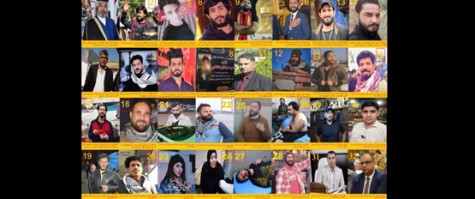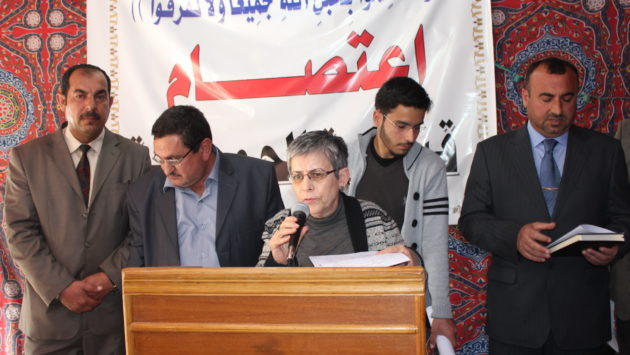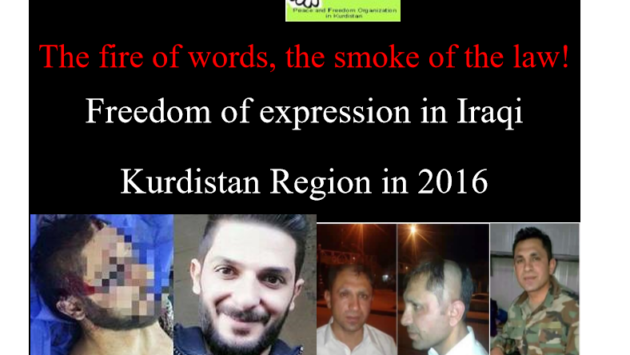GCHR’s Tenth Periodic Report on Violations During Popular Demonstrations
This is the tenth periodic report of the Gulf Centre for Human Rights (GCHR) about violations during popular demonstrations in Iraq. This report sheds light on killings, abductions, prosecution and intimidation by filing lawsuits against human rights activists and protesters in Iraq.
Activists taking part in the demonstrations are still exposed to assassinations, kidnappings and intimidation by the authorities and armed groups in Baghdad, the capital, and other central and southern cities.
With the increasing acts of violence, which can clearly be described as systematic, there were not any noticeable steps taken by the Iraqi government in order to ensure justice for the victims and hold the perpetrators accountable, which has led to an increase in violations against activists in Iraq.
In the midst of the violations committed against activists and protesters, in November 2020 the Iraqi Parliament sought to pass the Cybercrimes Law, which human rights organisations consider as a method to restrict freedom of opinion and expression, and an attempt to gag civil society online.
GCHR has documented at least 43 activists who were threatened with death in southern Iraq, forcing all of them to leave their cities and flee to other cities.
GCHR considers these to be acts of intimidation aimed at pushing citizens, including various activists, to abandon their participation in the protests.
The draft Law on Information Technology Crimes that was first introduced to Parliament in 2011, then withdrawn in 2013, and then re-introduced in January 2019, includes extreme provisions imposing life in prison, as an attempt to legislate the Internet and impose government control over it.
The new draft law introduced in November 2020 is very similar to the draft law presented by the Iraqi parliament in its previous session in January 2019, which met widespread popular rejection, represented by demonstrations and protests by human rights organizations and civil society organizations, due to its restriction of freedoms and violations of a number of articles and paragraphs of the Iraqi constitution, especially Article (38) which guarantees freedom of opinion and expression.
In conclusion, the Iraqi legislation’s use of vague, unclear and ambiguous terms and conditions could lead to the use of the law to target politicians, activists, human rights defenders and journalists who criticize the situation in the country or deal with the country’s public affairs, or who publish information for the purpose of uncovering corruption. All this puts freedom of expression on the Internet in real danger.



